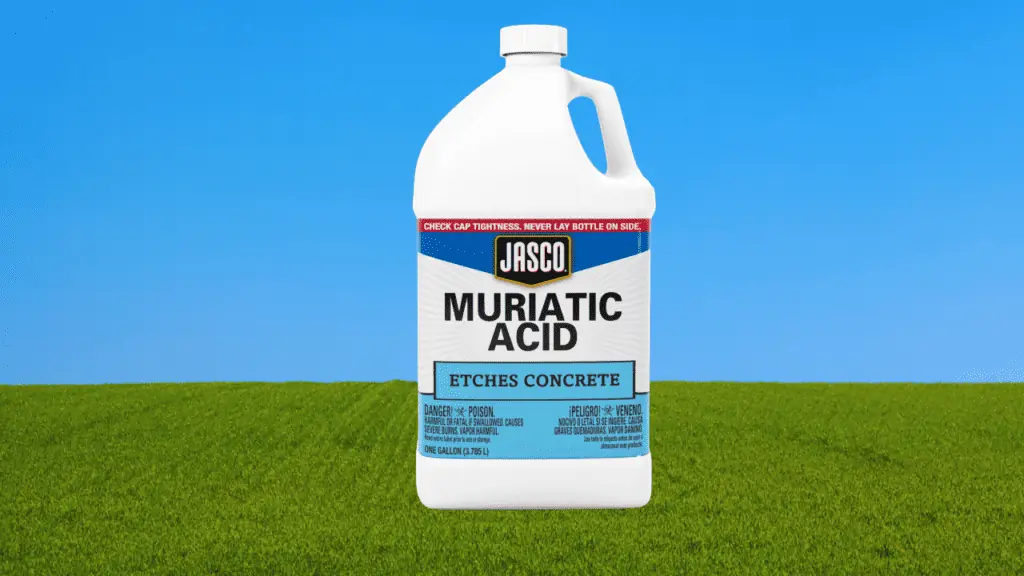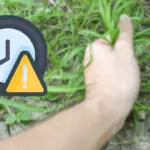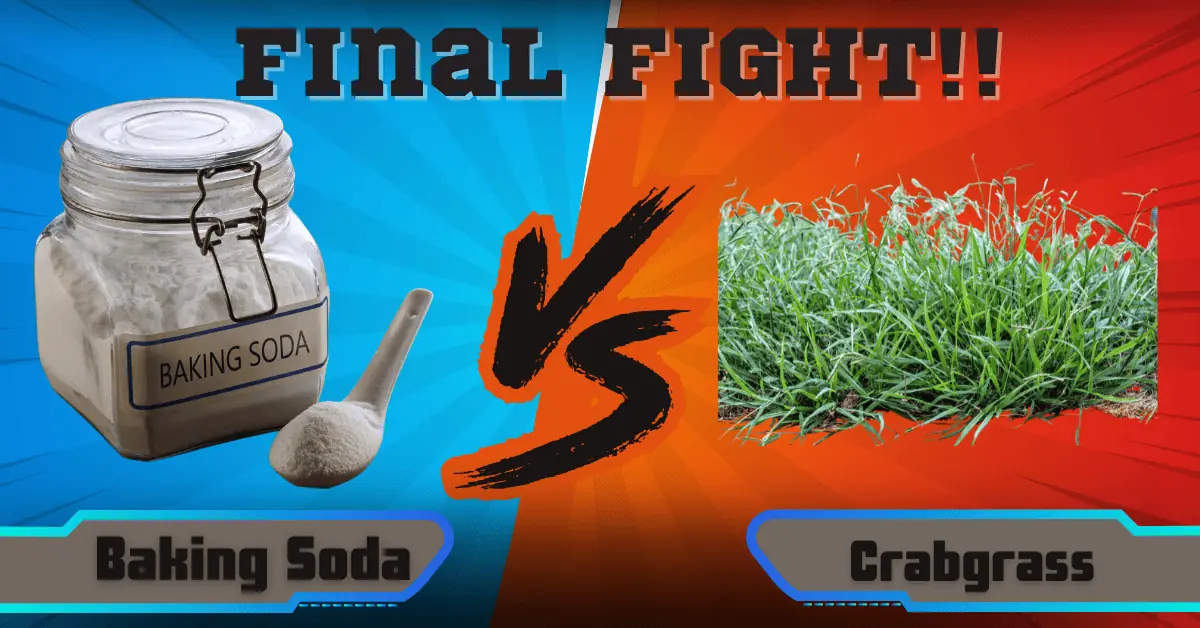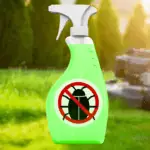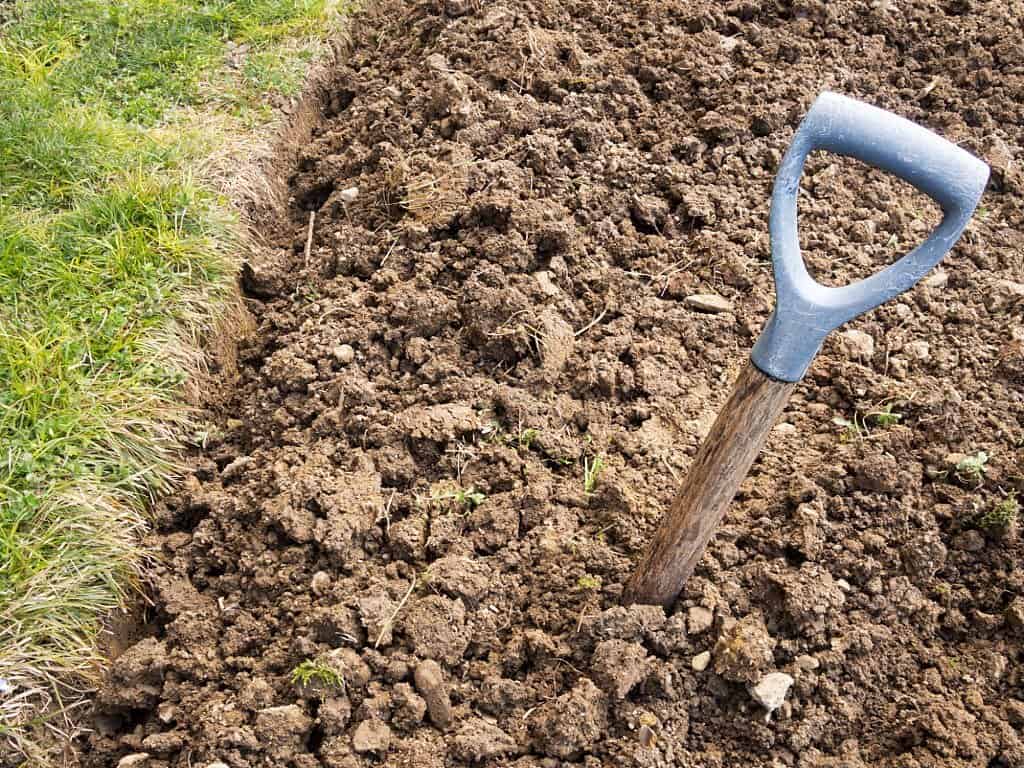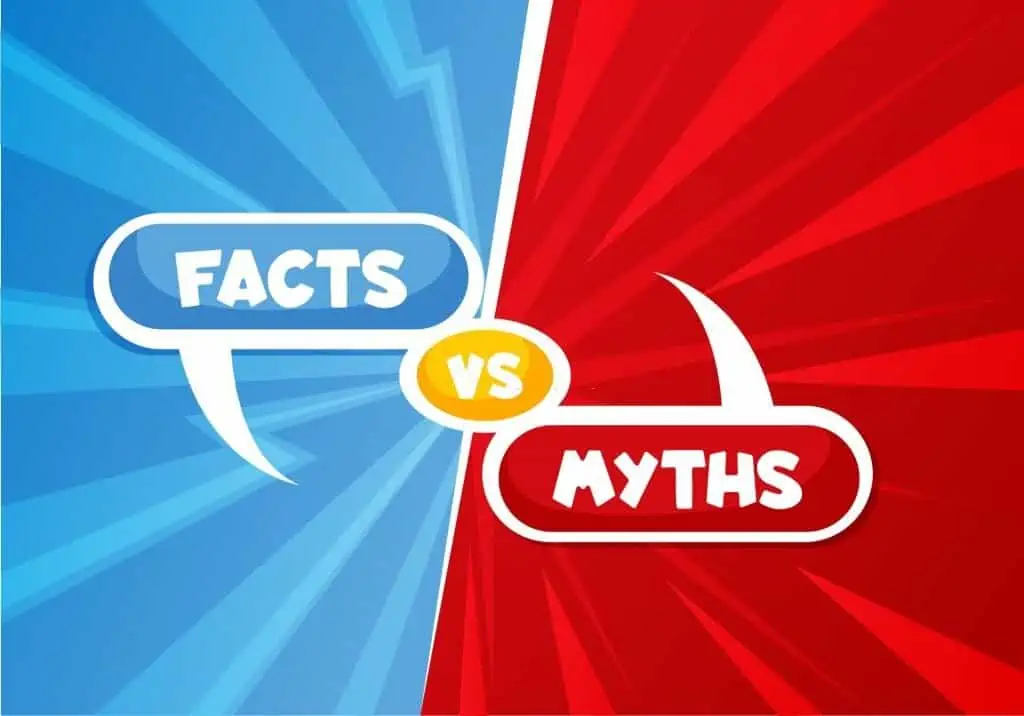If you want a yard full of healthy, fresh lawns, it’s best to take practical measures to help your grass grow. For example, you’d have to properly water, weed, and fertilize.
Muriatic acid is one chemical some homeowners might use to deal with unwanted plants or for other purposes. So, does this acid kill grass? It is a powerful chemical used to clean concrete and general masonry.
It is also helpful in removing stains and other build-ups of materials, especially to lower the pH level of swimming pools and hot tubs. The damage could be extensive when put on plants like grass and flowers.
This article will showcase the impact of muriatic acid on grass and other information on how to use and control the chemical.
Can Muriatic Acid Kill Grass and Weeds?
Yes, muriatic acid can kill the grass. As is often the case, when muriatic acid touches any plant life, it leads to damage. Such damage will cause the death of grass and many other plants, regardless of the variety. That makes the acid a favorite to remove unwanted plants, but it can kill off various weeds, bushes, and flowers.
If muriatic acid touches or splashes directly onto grass or weed, it will cause chemical burns and may burn straight through portions of the plant. In addition, if muriatic acid drains into the soil, it can leech onto plant roots, starving them of water and nutrients.
While in the soil, muriatic acid can stay for several days at unsafe levels. For this reason, you must clean up the area or neutralize any soil immediately.
Can Muriatic Acid Act as a Herbicide?
Muriatic acid is deadly to many plants, so using it to kill fungi, bacteria, and other organisms makes sense. That makes it useful as a herbicide. Also, weeds are unwanted, invasive plants you can eliminate with muriatic acid.
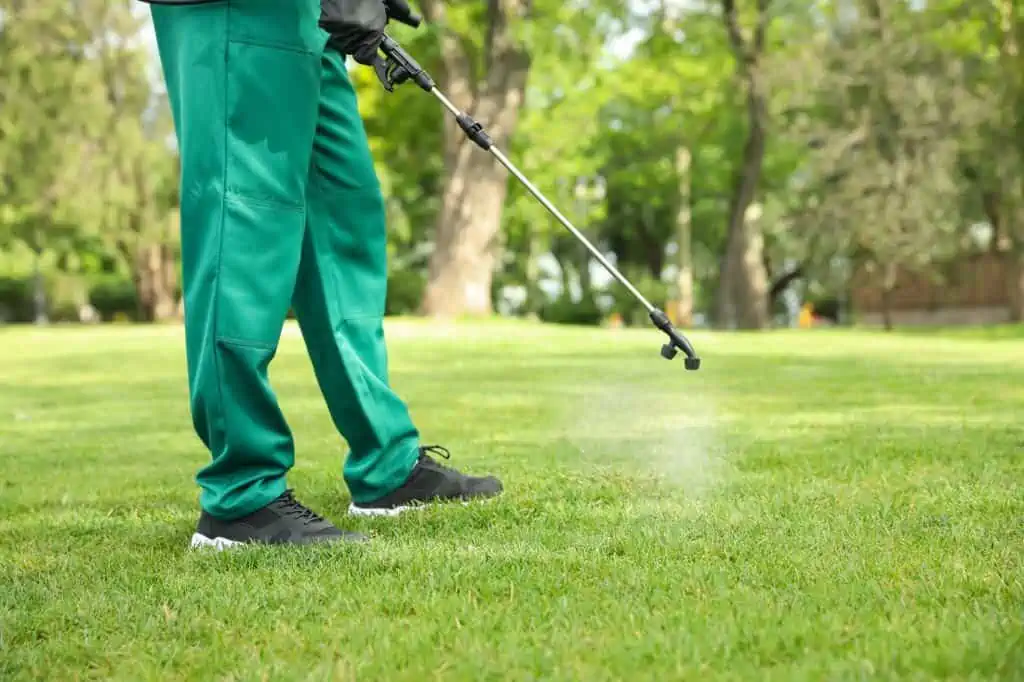
Using the acid as an herbicide must be monitored because it is very potent. Experts recommend using it as a last resort after trying multiple means of removing weeds from your lawn or garden. But if you want to eliminate every plant in your yard, it will help you accomplish that quickly. Otherwise, use a proper herbicide.
Further, muriatic acid is non-selective, killing any plant with which it comes in contact, including grass, trees, and flowers. It can also seep through the soil, extending its damage to organisms and long-term damage to the environment. Even animals that come in contact with it will face some danger.
Rather than use this acid, homemade solutions to weeds featuring baking soda and salt provide better alternatives and safer solutions. You don’t have to worry about your soil and other plant life getting affected by a spill or splash. Also, you could opt for herbicides made for that purpose, with chemicals your grass can tolerate.
How to Deal with Muriatic Acid Spills
Sometimes muriatic acid can accidentally spill on your lawn or soil. The damage could be extensive and long-lasting. That’s why it’s best to immediately neutralize the acid with a base. One common base is sodium bicarbonate or baking soda, a good first resort.
Calcium carbonate or garden lime is another practical choice. Once the dry baking soda or lime is applied, carefully add water to the affected area to dilute the liquid. After 15 to 30 minutes of application, adding sand or dirt over the spill should be safe. Allow it to dry.
Note that any plant caught in the spill will likely die back. With that, it’s best to wait several days and then test the soil’s acid content. Correct the pH accordingly before replanting.
It’s important to note that muriatic acid does not dissolve or disperse nicely into the soil. So, replanting on the soil you’ve previously used the chemical on can be destructive.
Effects of Muriatic Acid on Plants
Muriatic acid has varying effects on plants, depending on how much it comes in contact with them. However, even a minor amount of diluted muriatic acid can irritate. Humans are not exempted as well. In the case of eye contact, protective clothing should always be worn when using acid.

The effects of this acid on plants can be summed up in the following:
Splashes
When muriatic acid splashes on your grass or other plants, it leaves brown spots on the plant. Also, it can cause the foliage to wither at the contact site. You can limit the impact of the splash by thoroughly sprinkling garden lime and water.
Small Spills
When there’s a small spill of this chemical, the effect could be catastrophic for the plant. That includes the death of turf/grass affected, including the grass’s roots that absorb the residual acid in the soil.
Thankfully, you can do something to address the spill. Add sufficient agricultural lime to the spill area, and dilute it with plenty of water.
Extensive Acid Spills
Large spills can occur in your yard or garden. If your yard is average in size, such a spill will kill grass on contact. It will continue killing turf and weed growth until the soil returns to a normal pH range.
If a large spill happens, use industrial products like dolomitic lime to stop the effects of the acid. However, the soil and turf will need urgent and extensive rehabilitation before replanting.
Overwhelming Spill
The effects of such a spill could be terrible for your plant and soil. Acid spending increased time on the soil, causing damage on a large ecological scale. You’ll need to contain the spill immediately and remove the contaminated soil.
Add more neutralizing agents and bring in new soil to the affected area. After doing that, resod or replant to have any chance of restoring your lawn.
Conclusion
Yes, muriatic acid kills grass. It is used for various purposes, including for treatments around the yard. However, experts strongly warn against using it on your lawn or grass. It can have damaging effects since it melts and burns everything it touches.
No matter how diluted the chemical is, even a splash can have long-term effects on your grass yard. For this reason, it’s best to apply it to the plant you want to eliminate directly, ensuring your grass is protected. It can also damage your immediate environment.
Depending on the level of spills, you can use items like garden lime and baking soda to limit the effects of muriatic acid. Still, plants touched by this chemical will suffer the consequences.
Now that you know this, stay clear of muriatic acid for lawn or grass-related activities in your yard. This way, you avoid potential issues like damage to your lawn bed and soil.
